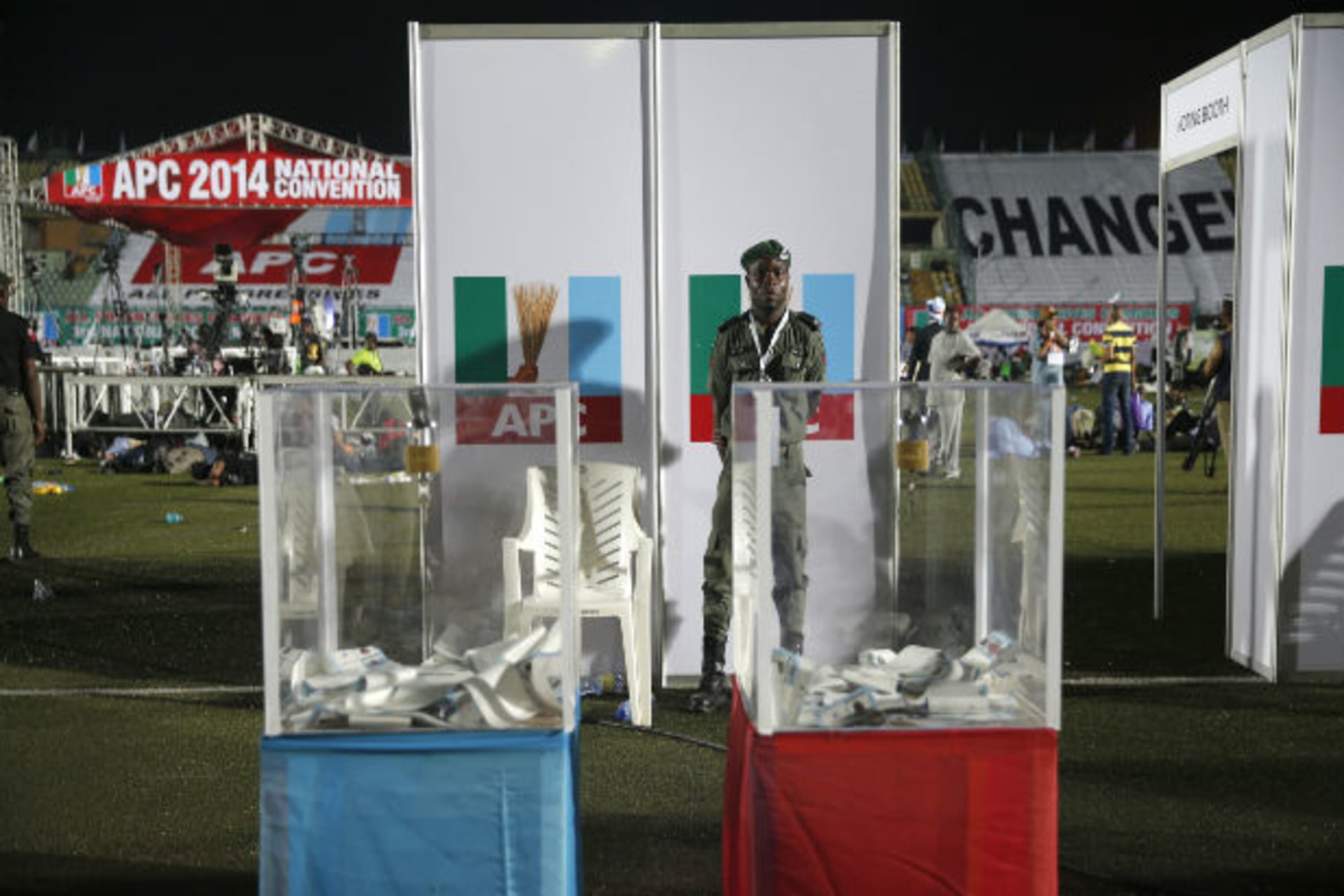Nigerians Impressed: the All Progressives Congress Convention

By experts and staff
- Published
By
- Guest Blogger for John Campbell
This is a guest post by Jean Herskovits, research professor of African history at SUNY-Purchase. Dr. Herskovits has been watching Nigeria’s politics at first hand for decades. She visits frequently, returning last month from her most recent trip. Dr. Herskovits is a member of the Council on Foreign Relations.
Set aside, for a moment, concern about Boko Haram. Suspend your fears of election-related violence. Take a break from petrol queues, sporadic power supplies, and revelations of corruption. Instead, join many Nigerians in their astonishment and sliver of hope that followed the All Progressives Congress’s (APC) presidential convention.
This was not so much about supporting the challenge to President Goodluck Jonathan’s People’s Democratic Party (PDP) as it was the feeling of “we can actually do it”—an orderly, transparent political process, culminating in a clear victor and losers who offered gracious concessions and pledges of support. The convention, broadcast live on independent television, streamed live on internationally-accessible web sites, blogged live by a prominent newspaper, broadcast on radio—unfolded in real time, hour after hour, and captivated Nigerians.
At the stadium in Suru Lere, Lagos, accreditation began at 2:45 p.m. Wednesday afternoon; by the time the convention finally started, at 11 p.m., 7,214 delegates, their biometrics recorded, had been accredited. Speeches by officials and all five candidates followed; voting began at 3:15 a.m. Thursday morning.
States were called in alphabetical order: delegates marked their secret ballots in voting booths and, on emerging, dropped the ballots into transparent boxes. Each state’s ballots were then loaded into giant ballot boxes.
At 8:49 a.m. voting ended and sorting began. Ballot boxes, each escorted by two armed mobile police, were emptied into a huge one, transparent like the others. Ballots were then sorted, candidate by candidate, into separate black boxes, while officials read aloud so all could hear: “Atiku, Buhari, Buhari, Buhari, Kwankwaso, Buhari, Buhari…” At 10:45 a.m., with only 1,000 votes sorted, the results were emerging: Buhari in the lead, Kwankwaso a distant second, Atiku, close behind him.
At 2:45 p.m., actual counting began, when the contents of Atiku Abubakar’s box were dumped on a table in full view: “…403, 404, 405, 406…” as each ballot was counted aloud and then dropped back into its box. Although at 4:30 p.m. they were still counting Buhari’s ballots, Atiku sent him a congratulatory message; the outcome was clear. Only at 6 p.m. were the final results announced: Buhari: 3,430; Kwankwaso, 975; Atiku Abubakar, 954; Okorocha, 624; Nda-Isaiah, 10. The surprise was Kwankwaso’s second place.
When General Buhari arrived later and made his acceptance speech, national, patriotic, and conciliatory in tone, it was for many Nigerians—young or not born when he was Head of State in 1984-5—the first time they had seen or heard him.
So, yes, the convention was a triumph for the APC, the first national party to pose a serious challenge to the PDP, and it was a triumph for General Buhari, now visibly having a national mandate to run.
But for many Nigerians it was also their triumph, whatever their politics, region of origin, religion, or ethnicity. From Lagos and Kano, from Ibadan, Ebonyi, Edo, Delta, to name only those states where I have had first-hand reports, people are saying that something important has happened: Nigerians have shown themselves and the rest of us that indeed they “can do it.”
No one knows what will happen next, though all who care about Nigeria must urge that the Independent National Electoral Commission (INEC) and the political parties follow such transparent, peaceful procedures in the February elections. And, as one Nigerian friend—discouraged for decades—put it, “even if not in my lifetime, our children will benefit from this event. At last we have given them an example to follow.”